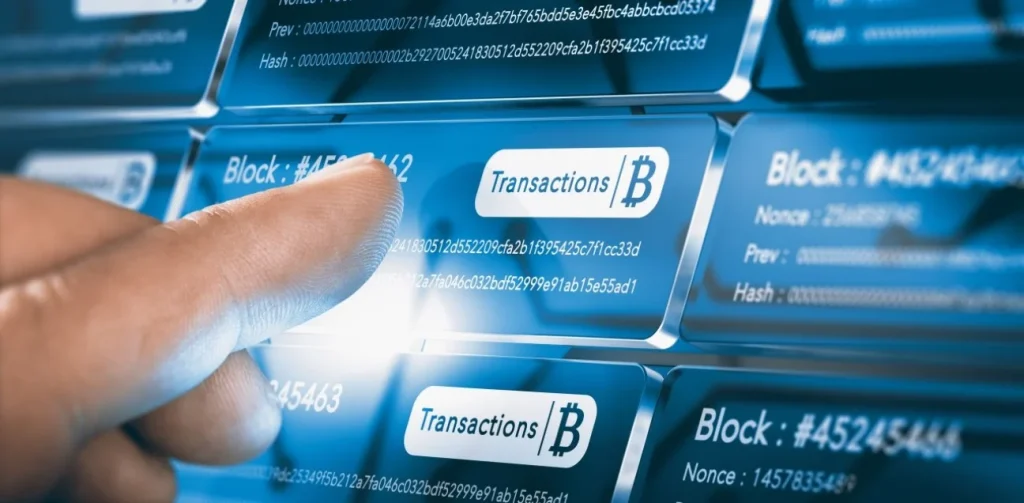When most people hear the term “blockchain,” their minds immediately go to cryptocurrencies like Bitcoin and Ethereum. While it’s true that blockchain technology first gained fame as the backbone of digital currencies, its applications extend far beyond crypto. Today, blockchain is transforming industries from finance to healthcare, supply chains, real estate, and more. Its ability to provide transparency, security, and decentralized control is reshaping how businesses operate.
Below, we explore how blockchain is changing industries beyond crypto and why its impact is only just beginning.
1. Revolutionizing Supply Chain Management

One of the most powerful applications of blockchain is in supply chain management. Traditional supply chains often suffer from lack of transparency, fraud, counterfeit products, and delays caused by poor coordination. Blockchain offers a secure, immutable ledger that can track every step of a product’s journey — from raw material to end consumer.
For example, food companies can use blockchain to trace the origin of ingredients in real time. If a contamination issue occurs, the exact source can be identified within seconds, allowing for faster recalls and improved food safety. Major companies like Walmart and IBM have already adopted blockchain-based supply chain systems to enhance accountability and trust.
2. Enhancing Data Security in Healthcare
Healthcare systems worldwide face challenges like fragmented data, privacy breaches, and inefficient record sharing. Blockchain can help solve these problems by creating a secure, tamper-proof system for storing patient records.
With blockchain, patients could have a single, encrypted health record that they control. Hospitals, laboratories, and insurance companies could access this record with permission, ensuring data integrity and reducing administrative errors.
Additionally, blockchain can support pharmaceutical supply chains, preventing the distribution of counterfeit medicines — a major global issue. Companies can track each drug’s journey, ensuring authenticity from manufacturing to pharmacy shelves.
3. Transforming Real Estate Transactions

Buying or selling property often involves a complex and lengthy process with multiple intermediaries — real estate agents, lawyers, banks, and notaries. Blockchain can streamline real estate transactions by enabling smart contracts and digital ownership records.
Smart contracts automatically execute agreements when predefined conditions are met, removing the need for middlemen. Property ownership records stored on blockchain are secure and verifiable, reducing the risk of fraud or disputes over land titles.
Countries like Sweden and Georgia have already tested blockchain land registries, significantly reducing transaction times and improving transparency in property dealings.
4. Improving Identity Verification and Privacy
In our digital age, identity theft and data breaches are major concerns. Blockchain technology offers a decentralized identity system, where users can control their personal information without relying on centralized databases vulnerable to hacking.
Blockchain-based digital IDs could allow individuals to prove their identity securely across platforms — from online banking to travel — without constantly sharing sensitive personal data. This approach not only enhances security but also gives users more control over how their information is used.
5. Powering the Future of Finance (Beyond Cryptocurrencies)
While blockchain is closely associated with cryptocurrencies, its potential in the broader financial sector is even greater. Blockchain can speed up cross-border payments, reduce fees, and increase transparency in transactions.
Banks and fintech companies are exploring blockchain for trade finance, loan processing, and fraud detection. Decentralized finance (DeFi) platforms, built on blockchain, are creating new ways for people to borrow, lend, and invest — often with lower costs and greater accessibility than traditional systems.
6. Supporting Green Energy and Sustainability

Another innovative application of blockchain is in energy and sustainability initiatives. Blockchain can facilitate peer-to-peer energy trading, allowing households with solar panels to sell excess energy directly to their neighbors. It can also help track carbon credits, ensuring that emissions reduction claims are transparent and verifiable.
By bringing trust and traceability to the energy sector, blockchain is helping build smarter, more sustainable systems for the future.
7. Reshaping the Entertainment and Creative Industries
Artists, musicians, and content creators often struggle to get fair compensation for their work due to intermediaries and piracy. Blockchain offers a way to protect intellectual property and enable direct monetization.
For example, musicians can release songs on blockchain platforms where smart contracts automatically distribute royalties each time a song is played or sold. Similarly, NFTs (non-fungible tokens) allow creators to authenticate and sell their digital art, opening up new revenue streams and ownership models.
Conclusion
Blockchain is no longer just about cryptocurrencies — it’s a transformative technology reshaping multiple industries. From improving transparency in supply chains to securing health records, streamlining real estate deals, and enabling sustainable energy markets, blockchain’s potential is vast.
As businesses and governments continue to explore innovative use cases, blockchain is expected to become an integral part of the global digital infrastructure. While challenges remain — such as regulatory concerns and scalability — the momentum is undeniable.
The future belongs to those who can leverage blockchain’s power to create more secure, transparent, and efficient systems beyond the world of crypto.


